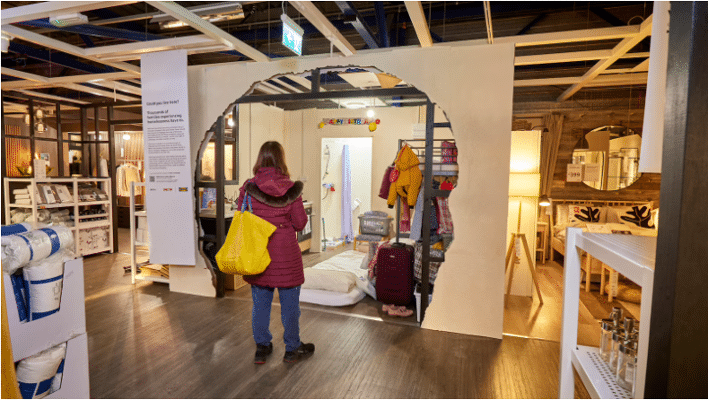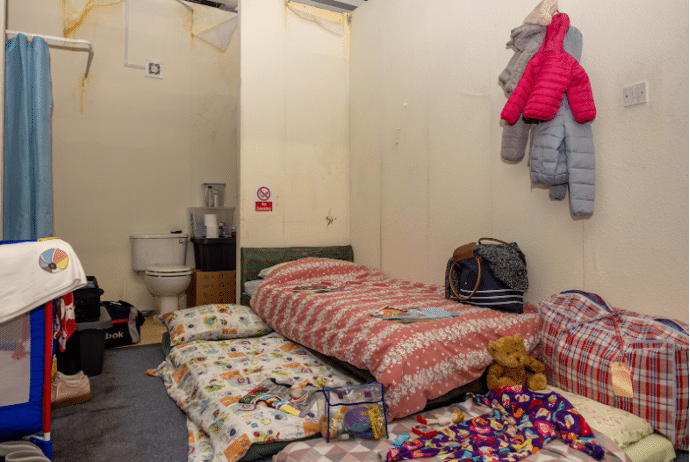IKEA and Shelter’s partnership shocks shoppers with ‘Real Life Roomsets’
In a savvy out-of-home partnership between homelessness charity Shelter and homeware fanatics IKEA, four ‘real life roomsets’ have been stopping shoppers in their tracks. Appearing in London Hammersmith, Manchester, Birmingham, and Bristol stores, the sets showcase the often-squalid conditions of those facing homelessness in temporary accommodation.
In support of Shelter’s #BuildSocialHousing campaign, the partnership has created true-to-life replicas of temporary accommodation in IKEA’s famous ‘roomset’ format. According to Shelter, in the last ten years the number of people living in temporary accommodation in the UK has risen by 74%. The campaign hopes to inspire an increase in the building of social homes, with an amendment to the government’s Levelling Up and Regeneration Bill being the ultimate goal.
IKEA publicly backs the campaign and pledges longer-term support and, in a social media post, said the ‘Real Life Roomsets’ come “as part of our long-term partnership, demanding for 90,000 social homes to be built a year by 2030”. The pieces are already generating conversation, with twitter user @GemmaPettman admitting to being “stopped in her tracks” by the installation, “I hadn’t expected it to be so powerful”.
Unexpected partnerships like this tap into an ever-increasing demand for brands to engage in socially conscious and ethical ways. Take one look at IKEA’s socials and you will see a wider brand image push to become a more responsible retailer.
While morally commendable, there is also solid marketing science behind their doing so: increasing brand loyalty. A 2020 study published by the Marketing Intelligence & Planning journal confirms what has long been suspected – not only is brand loyalty uplifted by the quality and perceived value of a product, but it is also directly linked to brand trust.*
This emotion-led synergy between brand trust and brand loyalty continues to drive these types of corporate marketing moves, with social consciousness becoming a central indicator of brand legitimacy, and therefore a cultivator of higher consumer trust. As for the charitable sector’s wider aims, the potential here for substantially increased reach outside of their typical audience presents a win-win for both parties involved.
The out of home pieces have been accompanied by free campaign toolkits and a #BuildSocialHousing online campaign.
Back to all platform watch


